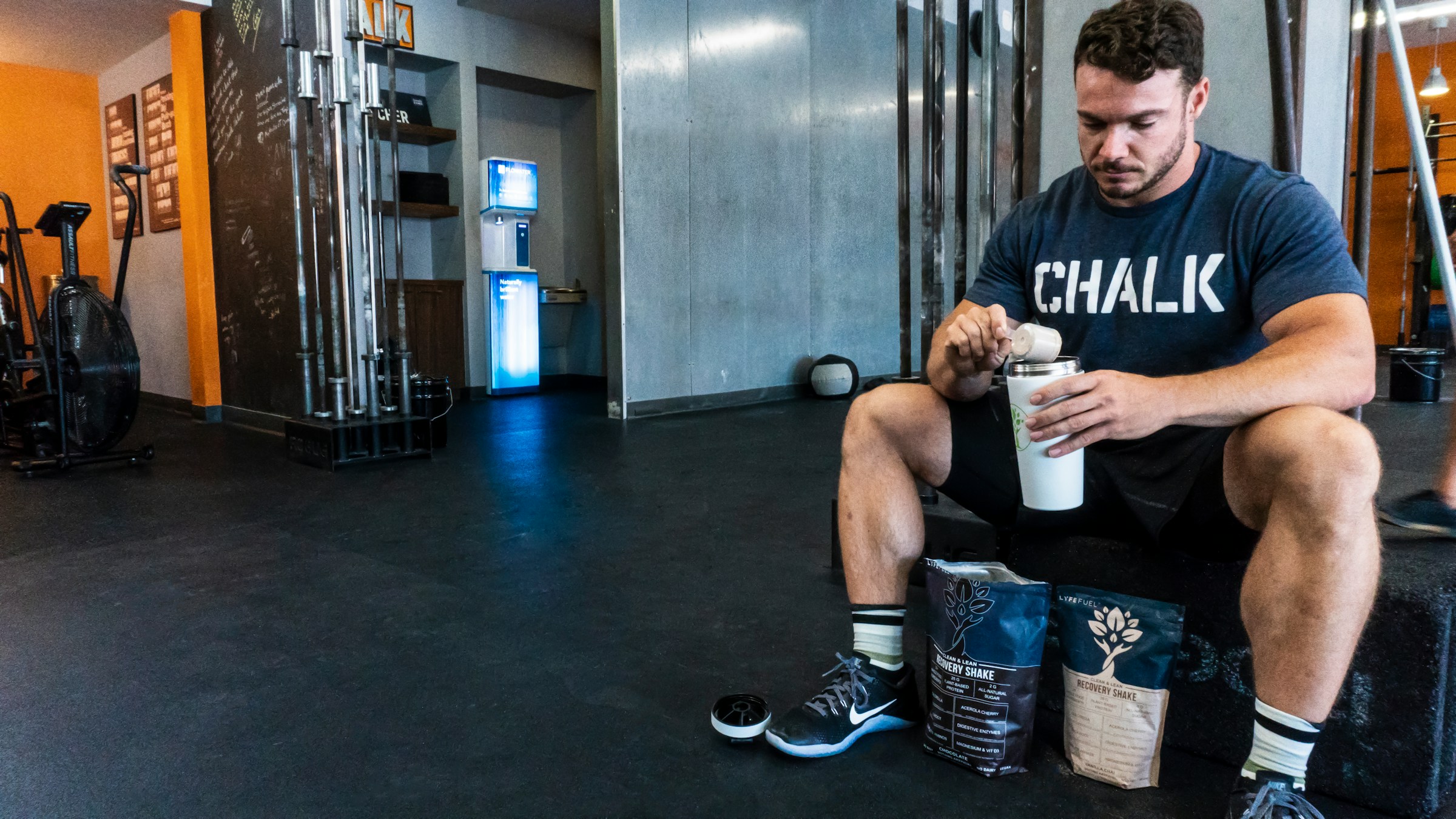The role of protein in physical fitness and muscle development is undeniable. For those who engage in strength training or high-intensity workouts, understanding the importance of protein intake for post-workout recovery is a fundamental part of achieving optimal results. This article will provide a thorough explanation of the recommended strategies for protein intake after training, specifically for weightlifters. These strategies are backed by credible sources such as Google Scholar, PubMed and Crossref, ensuring they are sound and scientifically accurate.
The Role of Protein in Muscle Recovery and Strength Development
Post-workout protein intake plays a vital role in muscle recovery and strength development. When we exercise, our muscles undergo a process called protein synthesis, a biological process where cells build new proteins. Simultaneously, the body also undergoes muscle protein breakdown, resulting in a negative protein balance. Ingesting protein post-workout helps to increase muscle protein synthesis (MPS) and reduces muscle protein breakdown, resulting in a positive protein balance.
There are several scholarly articles supporting this claim. According to a study published on PubMed, resistance exercise increases MPS for up to 48 hours in trained individuals. Another study published in Sports Medicine indicates that post-exercise protein intake enhances MPS and is vital for muscle repair and remodeling, as well as for improvements in strength and body composition.
The Right Amount of Protein for Post-Workout Recovery
Getting the right amount of protein post-workout is essential to facilitate optimal muscle recovery. But how much is just the right amount?
Research published on Google Scholar and PubMed supports the recommendation of 20 to 30 grams of high-quality protein after a resistance training session for optimal stimulation of MPS. This is roughly equivalent to a small chicken breast or a scoop of a good quality protein powder.
Conversely, excessive protein intake beyond this recommendation doesn’t necessarily lead to greater muscle protein synthesis. A study available on Crossref illustrates that protein intake beyond the optimal dose does not further augment MPS.
The Best Timing for Protein Intake
The timing of protein intake in relation to your workout is another essential factor that can impact muscle recovery and growth. The anabolic window, or the time frame shortly after exercise, is often considered the best time to consume protein for optimal MPS.
Research published on PubMed and Google Scholar shows that consuming protein within two hours post-exercise significantly enhances muscle recovery. But the debate about the exact timing within the anabolic window is still ongoing in the sports nutrition community. Some believe that immediate intake post-workout yields the best results, while others argue that the anabolic window extends up to 24 hours after exercise.
Choosing the Right Protein Source
Choosing the right source of protein is as important as the amount and timing. High-quality proteins that contain all the essential amino acids are the best choices for post-workout recovery. These include animal-based proteins like lean meats, fish, dairy products, and eggs, as well as plant-based proteins such as quinoa, lentils, and chickpeas.
Moreover, whey protein, a type of protein found in dairy, is often recommended due to its rapid digestion and absorption, making it ideal for post-workout recovery. According to a review on Crossref, whey protein provides a rapid, robust, but transient increase in plasma amino acid concentrations, stimulating muscle protein synthesis more effectively than other protein sources.
Integrating Protein with Other Nutrients
While protein is the star of post-workout recovery, it doesn’t work alone. Combining protein with other nutrients, particularly carbohydrates and fats, can enhance its effect on muscle recovery and growth.
Carbohydrates play a crucial role in replenishing muscle glycogen stores that have been exhausted during workout. A study published on Google Scholar suggests that combining protein with carbohydrates in the post-exercise meal can stimulate insulin secretion, which can further enhance muscle protein synthesis.
On the other hand, fats are often overlooked, but they can play a supportive role in post-workout recovery. They help in the digestion and absorption of fat-soluble vitamins and can provide a slow-release source of energy, which is beneficial in preventing muscle breakdown.
So, there you have it – the recommended protein intake strategies for post-workout recovery in weightlifters. By understanding these strategies and how to apply them, you can make the most of your workouts and see better results in your strength and muscle development.
The Impact of Protein Quality on Muscle Recovery
Just as important as the quantity and timing of protein intake is the quality of the protein consumed. The quality is determined by the protein’s amino acid profile, its digestibility, and its bioavailability. A high-quality protein is one that contains all nine essential amino acids in sufficient quantities. These amino acids cannot be produced by the body and must therefore be obtained from the diet.
According to a review published on PubMed and Crossref, animal proteins like lean meats, dairy, and eggs are considered high-quality proteins because they provide all the essential amino acids in the right proportions. In addition, they are highly digestible and have high bioavailability, meaning they are efficiently absorbed and used by the body.
However, this is not to say that plant-based proteins are not beneficial. Many plant sources, like quinoa and soy, are complete proteins as well. Furthermore, combining different plant proteins (e.g., rice and beans) can provide all the essential amino acids.
Whey protein, a by-product of cheese production, is often touted as the gold standard for post-workout protein sources due to its high leucine content—a key amino acid in stimulating muscle protein synthesis. According to a study cited on Google Scholar and Crossref, whey protein ingestion post-resistance exercise can enhance muscle protein synthesis and promote muscle hypertrophy.
Tailoring Protein Intake According to Individual Needs
While the general recommendation for post-workout protein intake is 20-30 grams, it is important to remember that protein requirements can vary based on individual factors such as body weight, muscle mass, workout intensity, and overall dietary intake.
For instance, a review on PubMed and Crossref suggests that individuals engaging in high-intensity resistance training may benefit from consuming up to 40 grams of protein post-workout to maximise muscle protein synthesis.
Moreover, those aiming to lose weight while preserving muscle mass may also require a higher protein intake. A study on Google Scholar indicates that a protein intake of 2.3-3.1 g/kg of lean body mass is effective in preserving muscle mass during periods of energy restriction.
Conclusion: Implementing Protein Intake Strategies for Optimal Post-Workout Recovery
In conclusion, the strategic intake of protein after a workout is crucial for weightlifters aiming to optimise their muscle recovery and strength development. This strategy revolves around the right amount, type, and timing of protein consumption.
Remember that consuming 20-30 grams of high-quality protein, which contains all the essential amino acids, within two hours after resistance exercise is generally recommended for maximal stimulation of muscle protein synthesis. Plant-based proteins can also be beneficial when combined correctly.
However, individual factors should not be overlooked, as protein requirements can vary greatly. Therefore, it is advised to seek guidance from a qualified sports dietitian or nutritionist to tailor a post-workout protein strategy that best suits your individual needs.
By understanding and implementing these evidence-based protein intake recommendations, weightlifters can enhance their post-workout recovery, promote muscle hypertrophy, and achieve their strength training goals more effectively.

